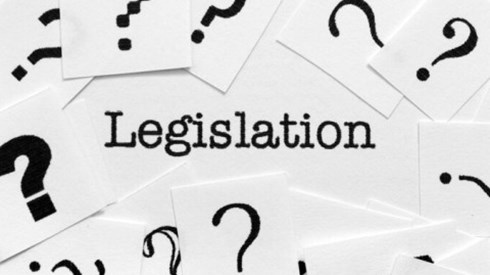Regulators Discuss Critical Captive Issues at WRCIC

June 21, 2021 See Related Articles and Videos

During one of the most well-attended sessions of the highly anticipated in-person 2021 Western Region Captive Insurance Conference (WRCIC), held recently at the Little America Hotel in Salt Lake City, regulators had the opportunity to discuss recent trends and opine on issues ranging from cannabis risks to tax matters.
The "State of the States—Regulator Roundup," as the session was aptly titled, was moderated by Allan Smith of Marsh Captive Solutions, with panelists Mel A. Anderson of Arkansas, Vincent Gosz of Arizona, Steve Matthews of Montana, and Travis K. Wegkamp of Utah.
Mr. Smith engaged the panelists with a series of questions meant to highlight key issues and provide industry professionals with a general idea of the positions of each domicile.
The initial question asked was, "What is your domicile's position about a parent company insuring its own cannabis exposures in a captive you regulate? What about third-party risk?" The answers ranged, as one might expect.
The response was, "No," from Utah, citing the fact that marijuana continues to be designated as a Schedule 1 drug by the federal government. Montana's response was also in the negative. Arkansas, however, does allow medical use of cannabis products, and its statute also allows risks associated with cannabis to be written in a captive.
For Arizona, while there is no explicit policy provision on a state level, the legislature has approved both medical and recreational use of cannabis. And, although Arizona has received no serious proposals, and while obstacles do remain (namely conflicting federal and state laws), Mr. Gosz suggested that Arizona regulators are open to listening to proposals, especially if the captive is reinsuring a commercial program.
The next question for the regulators was, "What impact, if any, do you think the Washington State legislation will have on the captive community?"
Mr. Anderson indicated that Arkansas agrees with the position taken by Vermont—that in allowing the state to charge taxes and fees on captives domiciled elsewhere covering risks in Washington, the new Washington law sets a terrible precedent, which drives up costs, and that other states could adopt in similar fashion. "This could have a detrimental impact on the industry," he said.
Mr. Wegkamp of Utah agreed, echoing the opinion of many in the industry, that while there are numerous ways states tax captives, in Washington, the registration and associated fees are a form of double regulation. Mr. Matthews of Montana was more optimistic, saying the captive community will find a way to work around this obstacle. Arizona had similar sentiments, with Mr. Gosz maintaining that Washington's move is "no surprise." However, there is concern that this trend will continue in other domiciles and have a ripple effect, he said as he expressed uncertainty over how far the approach can spread beyond just Washington companies.
The following question focused on the increased scrutiny by the Internal Revenue Service (IRS) of captives taking the 831(b) election and whether this was a good or bad thing. Panelists were asked if they saw a long future for the 831(b) election and how this will impact the future of US captives.
Mr. Gosz said that while the current IRS scrutiny is not good at present, the ultimate result remains to be determined as the need for small captives remains. The outcome will, eventually, likely be good, he said.
Mr. Matthews began by stating that 831(b) elections have decreased and are now only being taken by companies that are very confident that the election is the absolute right choice for their business.
Mr. Wegkamp said that he was originally hopeful that recent court case rulings and cases surrounding these issues would establish guidelines on what the IRS deems an appropriate use of the election, but that doesn't seem to have happened. He further noted that the IRS is not taking a proactive approach to helping the industry define what the agency expects with respect to the 831(b) election and the use of captives in general but rather that there is an overwhelming bullying with the decisions of these cases with more settling being done behind closed doors, further muddling expectations.
Mr. Wegkamp remained firm in his position that there is still a bright future for the industry and that the Protecting Americans from Tax Hikes (PATH) Act has slowed down the use of the 831(b) election.
Mr. Anderson took a similar stance that the court case results are sending mixed signals to smaller businesses and that this is surely a negative thing as business owners are trying to take steps to manage their risks and understand how best to structure their insurance programs. So, while on the one hand, they are being told it is a good idea to pursue a captive and possibly the 831(b) election, on the other hand, they are told that there will possibly be significant IRS scrutiny that could result in penalties. He suggested the following silver lining: this has caused companies to apply more resources and be sure before forming a captive, though the entire issue has ultimately sent mixed messages to the industry and to insureds.
The session concluded with questions for the regulators on how each domicile viewed pooling arrangements, and if this position has changed over time, or will change.
Mr. Gosz stated that Arizona has not wrestled with pooling, but he sees it as a "logical way to spread and manage risk in a large group," and that it is a legitimate option with contractual pooling arrangements. "As success and failures accrue, your philosophy is fine-tuned," he said.
Mr. Anderson agreed that there are legitimate uses of pooling and for captives in risk pools. He said that despite the additional scrutiny the IRS is giving to the model, Arkansas is not predisposed to look at pooling arrangements any differently than the rest of the business plan for the captive, nor does the captive domicile possess a predisposition to having concerns in regulating captives that participate in pools.
Mr. Matthews was emphatic that transparency is critical, asking the hypothetical question: "Does everyone in the captive, and in the pool, understand what is going on with the investment, the wrap-up, etc.?" Stating that if everyone understands how it works, Montana regulators neither like nor dislike pooling arrangements.
Mr. Wegkamp noted that Utah's position has not changed, further noting that it is unfortunate the IRS has created a "catch-22" in the sense that pools were an answer the industry came up with to satisfy the IRS's concern for appropriate risk distribution, but that this creative and successful industry response has been met with a suspicious eye by the IRS.
June 21, 2021




